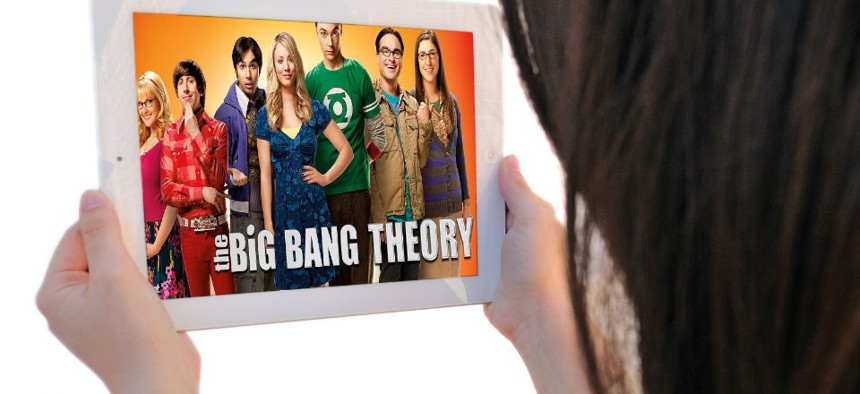
190166075 / Shutterstock.com
FCC Acts to Help Online Video Compete With Cable
The commission's plan to redefine TV would make it easier for online sites to offer popular channels.
The Federal Communications Commission advanced a proposal on Friday that could encourage more people to ditch pricey cable packages for online TV options.
The commission's proposal would give online companies the same legal protections as cable and satellite providers to buy access to popular channels.
The hope is that a surge of new viable online TV services would mean more choices for viewers and lower costs. Instead of choosing between two or three providers, viewers may have dozens of ways to watch TV.
"Our proposal will mean more alternatives for consumers beyond the traditional cable or satellite bundle, including giving consumers more options to buy the programming they want," FCC Chairman Tom Wheeler said in a statement.
The FCC's plan would classify certain online video services in the same category as cable and satellite TV providers ("multichannel video programming distributors," in the legal terminology).
That means that the online services would have the same right as cable companies to negotiate fairly for access to broadcast networks such as Fox and CBS. TV providers that also own cable channels (such as Comcast) wouldn't be allowed to block their online rivals from carrying those channels.
"Big-company control over access to programming should not keep programs from being available on the Internet," Wheeler said. "Today, we propose to break that bottleneck."
The proposal would apply only to online services that offer multiple streams of prescheduled programming. So the rules wouldn't cover Netflix and Hulu, which allow subscribers to watch videos whenever they want. But it would apply to services that are in the works from Sony, Dish Network, and Verizon.
It could also help the controversial service Aereo, which shut down earlier this year after a loss at the Supreme Court. The company allowed subscribers to stream local broadcast stations on their computers, phones, and tablets.
In a statement, Aereo CEO Chet Kanojia applauded the FCC for taking a "bold and meaningful step forward." But it may be too late for his company, which had to file for bankruptcy protection last month due to ongoing litigation with the broadcasters.
The National Cable and Telecommunications Association, which represents all of the big cable providers, said in a statement that the proposal can't "be squared with the plain language" of the law. But the group said it looks "forward to participating in this proceeding to ensure that any rules deemed necessary in today's competitive video distribution marketplace are fairly applied to all."
The ruling would give online services regulatory perks—but it could also mean new burdens. The online services may have to air emergency alerts, offer closed captioning, carry certain local stations, and comply with equal-hiring rules.
The commission will now accept public comments on its plan before making a final ruling.
But even if the FCC expands the legal protections for online video services, they will still face an important stumbling block. They would still lack the copyright license to carry local broadcast channels, which can only be granted by the U.S. Copyright Office.
(Image via 190166075 / Shutterstock.com)







